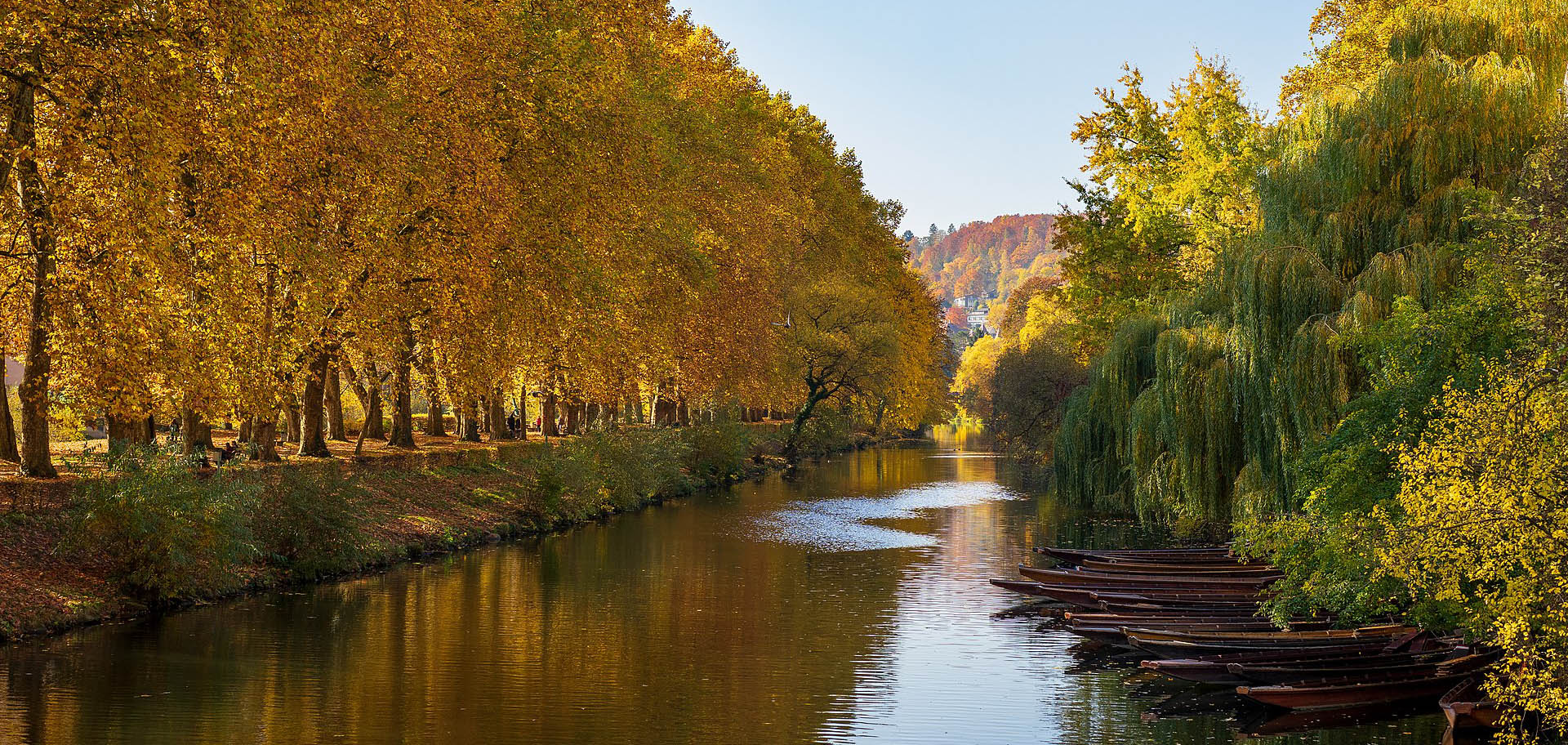Poems of Friedrich Hölderlin
 Neckar River at Lauffen, where Holderlin was born March 20, 1770. Photo: Flickruser "dv66".
Neckar River at Lauffen, where Holderlin was born March 20, 1770. Photo: Flickruser "dv66".
The Neckar
My heart awakened to life in your valleys,
Your waves played around me.
And all of the fair hills that know you,
Wayfarer, are known to me as well.
On those peaks the winds from the sky
Relieved me from pains of bondage,
And silver-blue waves shone forth from the valley,
Like the joy of life pouring out from a chalice.
Mountain springs hurried down to you,
My heart with them, and you took us along
To the quietly splendid Rhine, down
To its cities and pleasant islands.
The world seems to me yet beautiful, and my eyes
Break out with desire to the charms of the earth,
To golden Pactolus, to Smyrna’s shores,
To Ilion’s woods. How I’d like to
Go ashore at Sunium, and ask for the silent path
To your pillars, Olympia! Before age
And stormy winds bury you as well
In the ruins of Athens’ temples,
Along with the statues of its gods. For you
Have long stood alone, pride of a world
That no longer exists. And the beautiful
Islands of Ionia, where sea air
Cools the hot shores and rushes through the woods
Of laurel, when the sun warms the grapevines,
And, oh, where golden autumn changes
The sighs of the poor people into songs,
When the pomegranate ripens, when the orange trees
Nod in a green night, and the gum trees drip
Resin, and drums and cymbals resound
To labyrinthine dances.
Perhaps someday my guardian deity will bring me
To these islands, but even then my thoughts
Will remain loyal to the Neckar
With its lovely meadows and pastoral shores.
Next poem German text Home All poems
Notes
Hölderlin’s descriptions of nature often seem airborne, as if written down from the viewpoint of a flying drone. His Europe-consciousness was essentially bi-polar, swinging like a pendulum between Germany and the Greece of his imagination, with occasional stopovers in the Alps to witness the play of the titanic forces of 'Nature,' understood in the older sense as features of the earth that are uncontrollable. Germany meant for him mainly Swabia, roughly the modern state of Baden-Württemberg, and of course the Neckar runs through it.
In the years 1797-1801 Hölderlin wrote odes and elegies based on models from Antiquity. Most were unrhymed, required strict patterns of accented and unaccented syllables per line, often arranged in a specific number and pattern of strophes. This poem in its German form is an Alcaic stanza in the style of Horace.
Smyrna is a coastal city of Western Ionia, now Izmir in Western Turkey; Pactolus is a river in Ionia. Sunium (Cape Sounion) is 43 miles south of Athens, the southernmost point of the Attic peninsula, where the temple of Poseidon yet stands.
 Neckar River at Tübingen, where Holderlin died June 7, 1843.
Neckar River at Tübingen, where Holderlin died June 7, 1843.
Website and Translations Copyright © 2022 by James Mitchell